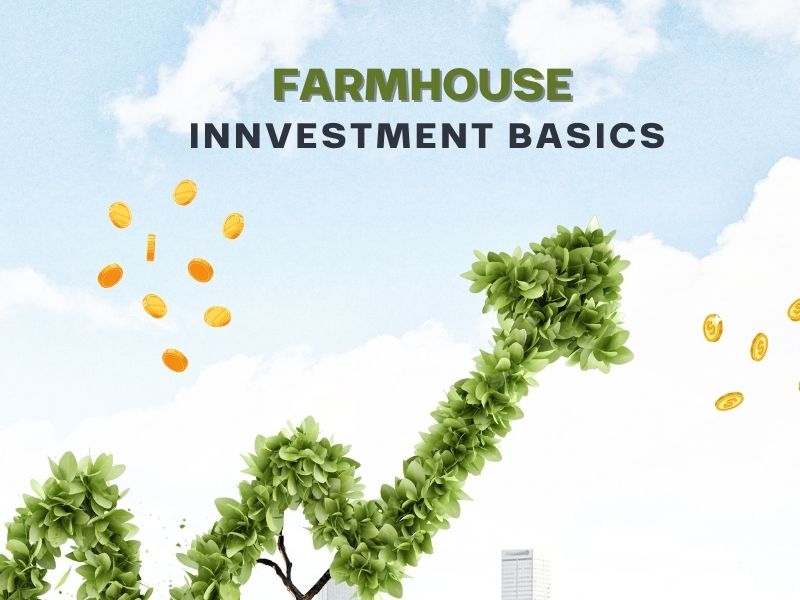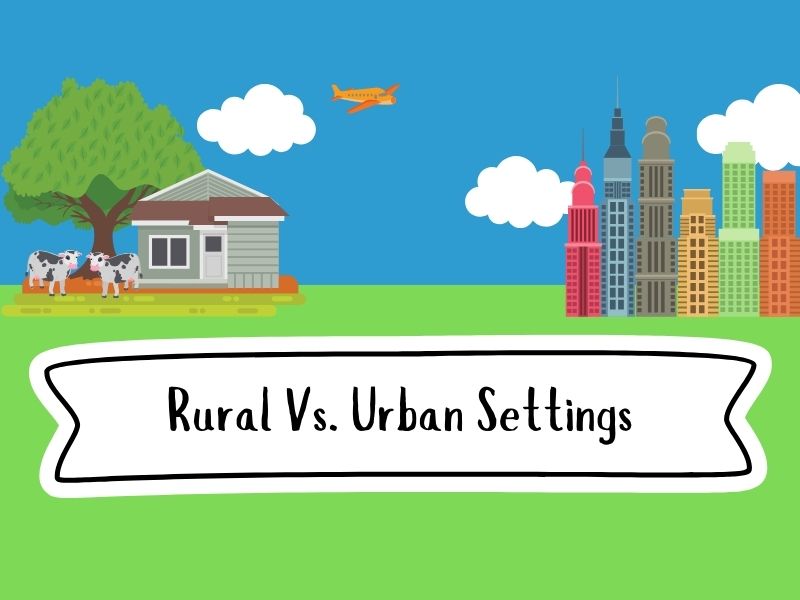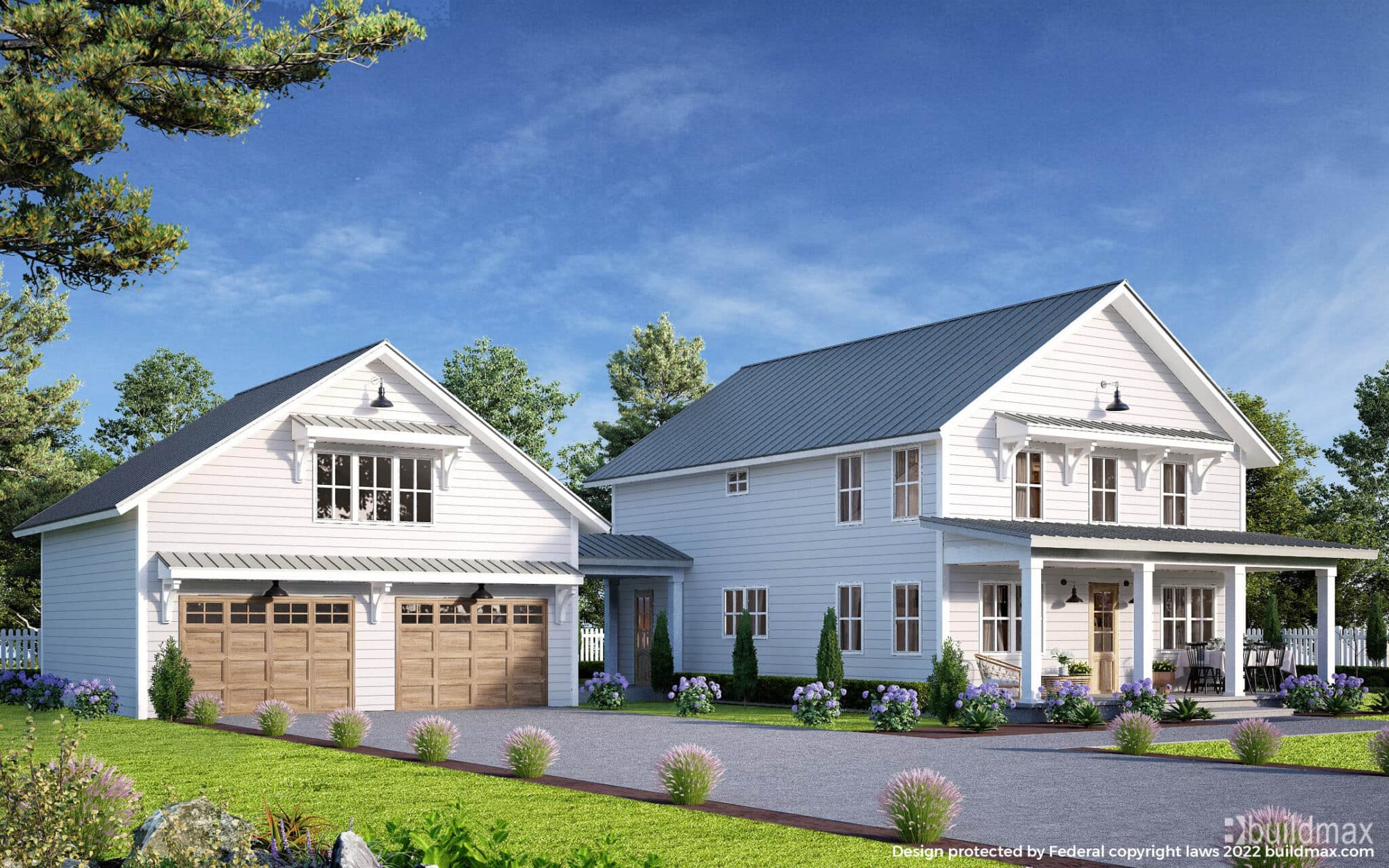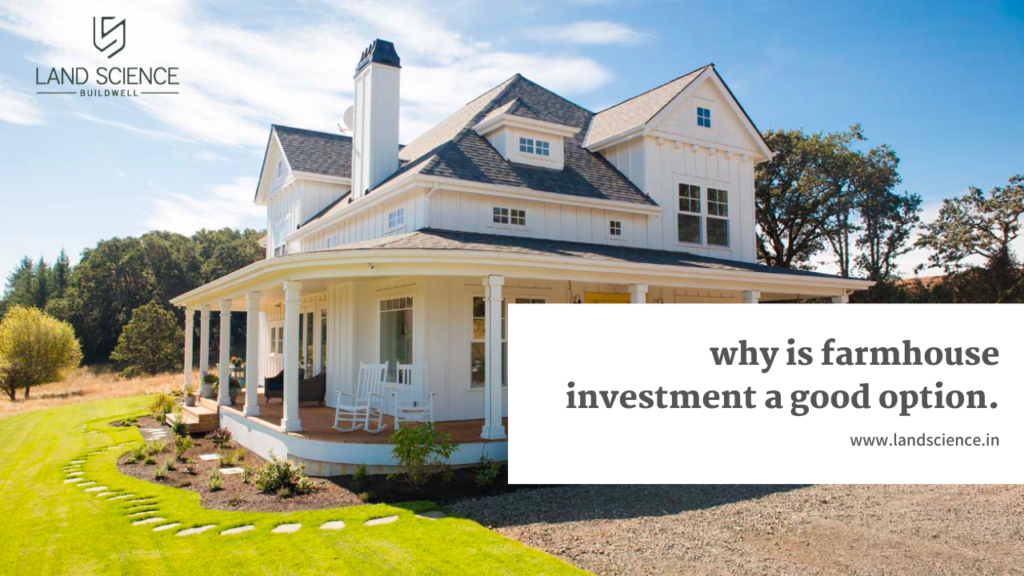Is Farmhouse a Good Investment? Yes, a farmhouse can be a good investment. It depends on various factors like location, purpose, and market trends.
Farmhouses offer a unique blend of tranquility and potential returns. Many people are drawn to the idea of owning a rural retreat. But, is it a wise financial decision? This question lingers in the minds of potential investors. Farmhouses can serve as vacation homes, rental properties, or even future retirement spots.
The allure of open spaces, fresh air, and a slower pace of life adds to their charm. Yet, like any investment, it’s crucial to weigh the pros and cons. Understanding market dynamics, maintenance costs, and potential income streams is essential. Dive into the details to see if a farmhouse aligns with your financial goals.
Farmhouse Investment Basics
Investing in a farmhouse can be a rewarding venture. It is important to understand the basics before diving into this unique investment opportunity. This section will cover key aspects of farmhouse investment basics, helping you make an informed decision.

What Is A Farmhouse?
A farmhouse is a residential building located on agricultural land. It is often surrounded by fields, gardens, or pastures. Farmhouses typically feature rustic designs and are built to withstand rural environments. They can serve as primary homes, vacation retreats, or rental properties.
Farmhouses offer a blend of modern living with a touch of countryside charm. They provide ample space and privacy, making them attractive to families and individuals seeking a peaceful lifestyle.
Historical Investment Trends
Investing in farmhouses has a long history. Historically, farmhouses were primarily owned by farmers. Over time, they have gained popularity among investors and city dwellers seeking second homes.
| Period | Trend |
|---|---|
| Early 1900s | Primarily owned by farmers |
| Mid-1900s | Rise in popularity among city dwellers |
| Late 1900s | Increased demand for vacation homes |
| 2000s | Growing trend of rental properties |
The current trend shows a steady increase in farmhouse investments. Many people are now looking for properties that offer both relaxation and income potential.
Key Takeaways:
- Farmhouses can be used as primary residences or rental properties.
- They offer a combination of modern amenities and rural charm.
- The demand for farmhouses has been growing steadily.

Credit: builtritebuilding.com
Market Demand
Market demand plays a crucial role in the potential success of any investment. Understanding current trends and future predictions can help investors make informed decisions. Let’s explore the market demand for farmhouses and what it means for potential investors.
Current Market Trends
More people are seeking rural retreats. This shift is driven by the desire for spacious living and natural surroundings. The pandemic has accelerated this trend. Many now prefer remote work and distance from crowded cities.
Farmhouses provide a unique blend of serenity and modern amenities. This makes them attractive to families and retirees. The demand for farmhouses has surged in the past few years. More listings are appearing on real estate websites, showing rising interest.
According to recent surveys, more urban dwellers are considering relocating to rural areas. This indicates a sustained interest in farmhouses. Investors can leverage this demand for potential profits.
Future Market Predictions
The future looks bright for farmhouse investments. Experts predict a continued rise in demand. The trend of remote work is likely to persist. This means more people will seek peaceful living environments.
Environmental awareness is also growing. Farmhouses offer eco-friendly living options. Solar panels, organic farming, and sustainable practices attract environmentally conscious buyers. This trend is expected to grow, increasing farmhouse demand.
Government policies may favor rural development. Incentives for rural housing projects could further boost demand. These factors suggest that investing in farmhouses could be a wise choice.
In summary, understanding market demand is key. Current trends and future predictions both point to a promising market for farmhouses.
Location Factors
Location plays a crucial role in determining the value of a farmhouse investment. The right location can increase the property’s value and rental income potential. Let’s explore some key location factors that can impact your decision.
Prime Locations
Prime locations often offer better returns on investment. These areas usually have higher property values and greater demand. Proximity to popular tourist spots or scenic landscapes can also boost the attractiveness of a farmhouse.
Consider areas with good infrastructure and amenities. Easy access to roads, markets, and healthcare facilities can make a big difference. Properties in prime locations tend to appreciate faster, offering better resale value.
Rural Vs. Urban Settings
Rural settings offer peace and tranquility. Farmhouses in rural areas provide a serene environment away from city noise. These locations are ideal for people seeking a quiet retreat.
Urban settings offer convenience and accessibility. Farmhouses close to urban centers can attract more visitors due to better connectivity. These properties can also serve as event venues, increasing rental income potential.
Evaluate the pros and cons of both settings. Rural properties may offer more land and privacy, while urban properties provide better facilities and higher rental demand.

Financial Considerations
Investing in a farmhouse can be a great decision for many reasons. Yet, it is important to look at the financial considerations. These include initial costs and long-term profits. Understanding these can help you make an informed choice.
Initial Costs
The initial costs of buying a farmhouse can be high. You need to consider the purchase price, which depends on the location and size. Other costs include:
- Legal fees
- Surveyor fees
- Renovation costs
Here is a simple breakdown:
| Expense | Average Cost |
|---|---|
| Legal Fees | $2,000 – $5,000 |
| Surveyor Fees | $500 – $1,000 |
| Renovation Costs | $10,000 – $50,000 |
Initial costs can be significant. Yet, they are a one-time expense. Once you have paid these, you can focus on making a profit.
Long-term Profits
Farmhouses can provide long-term profits. One way is through rental income. Many people look to rent farmhouses for vacations or events. You can earn a steady income from rentals. Another way is through agricultural activities. You can grow crops or keep livestock. This can provide additional income.
Here are some long-term profit options:
- Renting the farmhouse for vacations
- Hosting events like weddings
- Running a bed and breakfast
- Engaging in farming activities
Long-term profits can offset the initial costs. They can provide a steady income stream. This makes a farmhouse a solid investment.
Legal Aspects
Investing in a farmhouse can be rewarding, but understanding the legal aspects is crucial. These legalities determine the feasibility and long-term benefits of your investment. Below, we delve into important legal considerations.
Zoning Laws
Zoning laws regulate land use and can impact your farmhouse investment. These laws dictate how the land can be used, whether for residential, agricultural, or commercial purposes. Ensuring your farmhouse complies with local zoning laws is essential. Violations can lead to fines or legal disputes. Always check the zoning regulations before purchasing.
Property Taxes
Property taxes are another critical legal aspect to consider. These taxes vary by location and depend on the property’s value. Knowing the property tax rate helps you budget accurately. Missing property tax payments can result in penalties or even property seizure. Consult with a local tax advisor to understand your obligations and plan accordingly.

Credit: buildmax.com
Maintenance And Upkeep
Investing in a farmhouse can be a rewarding experience. But it comes with its own set of challenges. One of the main considerations is maintenance and upkeep. This section will explore the routine tasks and unexpected costs associated with maintaining a farmhouse.
Routine Maintenance
Routine maintenance is essential to keep your farmhouse in top condition. Regular tasks include:
- Cleaning gutters
- Inspecting the roof for damage
- Servicing HVAC systems
- Pest control measures
- Painting and sealing wood structures
These tasks prevent long-term damage. They also ensure the property remains functional and attractive. Neglecting routine maintenance can lead to costly repairs down the line.
Unexpected Expenses
Despite best efforts, unexpected expenses can occur. Common unforeseen costs might include:
| Expense Type | Description |
|---|---|
| Roof Repairs | Damage from storms or wear and tear |
| Plumbing Issues | Leaky pipes or septic system failures |
| Electrical Problems | Faulty wiring or power surges |
| Pest Infestations | Termites, rodents, or other pests |
| Structural Damage | Foundation issues or wall cracks |
Setting aside an emergency fund can help manage these unexpected expenses. It is wise to budget for these potential costs to avoid financial strain.
Potential Income Sources
Investing in a farmhouse can offer many income opportunities. Beyond its charm and tranquility, a farmhouse can be a lucrative asset. Explore how you can generate income with these potential sources.
Rental Income
Renting out your farmhouse is a popular option. It provides a steady cash flow. Here are some ways to maximize rental income:
- Short-term Rentals: Platforms like Airbnb can help. Tourists often seek unique stays.
- Long-term Rentals: Ideal for people wanting a countryside experience. It ensures consistent income.
- Event Hosting: Weddings, parties, and retreats are in demand. Your farmhouse can be a sought-after venue.
Renting out your farmhouse can be profitable. It covers maintenance costs and generates extra income.
Agritourism Opportunities
Agritourism is a growing trend. It combines agriculture and tourism. Visitors experience farm life and learn about agriculture. Here are some agritourism ideas:
- Farm Tours: Offer guided tours of your farm. Educate visitors about farming practices.
- Workshops: Host workshops on gardening, cooking, or crafting. Attract those interested in learning new skills.
- Farm-to-Table Experiences: Provide meals made from farm-fresh produce. This can be a unique dining experience.
- Pick-Your-Own: Allow visitors to pick fruits or vegetables. It is a fun and engaging activity.
Agritourism can diversify your income. It attracts a wide range of visitors. This can make your farmhouse a destination of choice.
Investing in a farmhouse can be a wise choice. The potential income sources make it a valuable asset. Whether through rentals or agritourism, the opportunities are vast.

Credit: navimumbaihouses.com
Risks And Challenges
Investing in a farmhouse can be a dream for many. But it comes with risks and challenges. Understanding these can help make an informed decision. This section explores the possible pitfalls of such investments.
Market Volatility
The real estate market is unpredictable. Prices can fluctuate due to various factors. This can make it hard to predict returns on investment.
- Economic downturns can reduce property values.
- High demand in urban areas can shift focus away from rural properties.
- Changes in government policies can affect property prices.
Investors should monitor market trends. This helps in making better decisions.
Environmental Concerns
Environmental factors play a significant role. A farmhouse is often located in rural areas. These areas may face unique challenges.
- Natural disasters like floods or droughts can damage property.
- Proximity to wildlife can lead to unexpected costs.
- Environmental regulations can limit property use.
Being aware of these factors is crucial. This can help in planning for contingencies.
Frequently Asked Questions
What Makes A Farmhouse A Good Investment?
A farmhouse can be a good investment due to its potential for high rental income, appreciation, and lifestyle benefits.
How Can A Farmhouse Generate Income?
A farmhouse can generate income through short-term rentals, hosting events, or agricultural activities.
Are Farmhouses Expensive To Maintain?
Farmhouses can be expensive to maintain due to their size and unique features. Proper budgeting is essential.
Is Location Important For Farmhouse Investments?
Yes, location is crucial. Proximity to urban areas, natural beauty, and accessibility significantly affect a farmhouse’s value.
Conclusion
Investing in a farmhouse can be a smart decision. It offers potential financial gains and a peaceful retreat. With rising demand, farmhouses can appreciate in value. Think about location, maintenance, and market trends. Weigh your options carefully. A well-chosen farmhouse might provide both joy and profit.
Always research thoroughly before making a decision. A farmhouse investment can be rewarding with the right approach.

Sarah Bennett is a passionate home decor enthusiast and the creative mind behind ConsumerDecor. With a love for design and an eye for detail, she shares inspiring ideas, emerging trends, and practical tips to help readers create beautiful, functional living spaces. Sarah believes that every home deserves a touch of style, no matter the budget.





